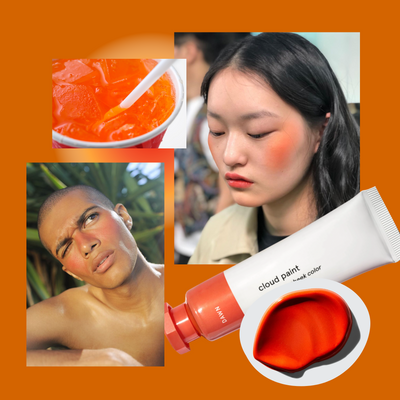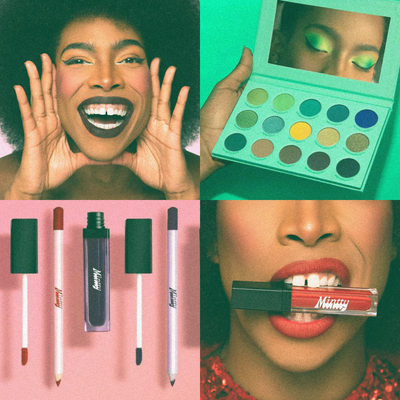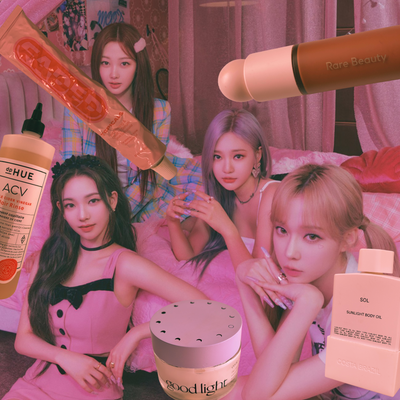NEW YORK, NY – “We’re twins but we’re different,” clarifies Jason McCourty, one-half of the “McCourty Twins” with identical brother, Devin.
The two may physically look the same, have a penchant for wearing the exact pair of Hudson jeans, and, oh yeah, play for the same NFL team (the New England Patriots!) but Jason will swear that they’re truly, absolutely unique.
For instance, Jason says, Devin is louder, more outgoing. Jason, on the other hand, is the caretaker, the older brother of sorts, though born 27-minutes later, who got drafted, married and had a child first. “I’ve been showing him the reigns,” he says to Very Good Light, laughing.
SEE ALSO: How the Love, Simon cast helped actor Keiynan Lonsdale come out
We’re in New York City for the launch of Gillette’s five new razorblades where the McCourtys are the brand’s newest ambassadors. Among the five new products is the Sensor3 Cool, an upcoming blade with cooling technology that the brothers say works well with their coarse facial hair.
“It’s been a learning experience with shaving and we’ve been taking shaving seriously for the past two to three years,” Jason says. “We have sensitive skin that leads to a lot of razor bumps and breakouts. So it’s all about using sensitive skin products and going with the grain, not against.”
Along the process, Devin says getting to a good place with shaving was one that took initiative – and practice. “You can’t relax, you have to put in the work and actually go through the entire process.” That process includes using a sensitive skin product, shaving carefully, using an after shave right after.”
“When you’re comfortable with your own skin you create charisma.”
Grooming, Devin says, is important for all guys. And now is becoming less taboo.
“I’ll use a lot of products for my face and people might say, oh, only females do that,” says Devin. “But I’m like, I do, too. I think it’s important for young men to know that this is acceptable. I want people to be more comfortable with who they are and if me being a role model who uses products makes them more comfortable, that’s awesome.”
Being authentic, the brothers say, is something they want to promote to young people.
“We want to empower guys to know that being unique and being your own person is cool,” says Devin. “It’s funny, in high school everyone wants to be the same. They think they gotta be macho. It’s not cool to be different. But it’s important for us as we’re older to talk to kids and empower them. You might feel like you’re an outcast now or don’t fit in, but it’s cool to be yourself.”
It’s something that both of them experienced in high school.
“There are nerds, there are geeks, and everyone wants to feel accepted,” says Jason. “We excelled at football so we were able to gain respect, but we understand how it feels not to fit in.” But not fitting in, says Jason, only creates a better person. “At the end of the day if you can fit yourself in your own box of comfort, you’ll be surprised by how many other people want to be around you,” he says. “When you’re comfortable in your own skin you create charisma.”
“I think it’s so important that in the locker room we speak about different things and issues. Whether it’s sexuality or racial injustices. That frees up people to open up and talk about different things we don’t know guys are going through.”
Whether or not it’s being a young person in a small town or a new player in the NFL, the McCourtys say that the experiences of manhood are universal.
“You might be a new NFL play from a small-town in New York who goes to play in Los Angeles, or a normal guy, but the experiences are similar,” Jason says. “You try to think who you should be at that age, that you should have all of these women, this money or what not. But you’re not supposed to do anything but live authentically. You don’t have to impress anyone.”
Which is something they hope changes how all guys think about themselves and embrace others.
“I think we’re getting there,” says Jason. “In the NBA I’ve seen three players struggling with depression and panic attacks come out and talk about it. I think it’s really cool. People are really talking about what they go through on a daily basis. As athletes, we have a platform. We can really affect change with young kids to adults who are struggling with the same things.”
It translates to all aspects of a man, even sexuality.
It’s a sore topic for Devin, as one of his friends and fellow teammate, Aaron Hernandez, died by suicide reportedly after being outed for his own sexuality. Aaron, a 27-year old who was in prison for an alleged murder, is rumored to have struggled with coming to terms with his own attraction to men. Recent media reports and the a 4-hour documentary about him on Oxygen have been biased and to a large extent, homophobic. Telling on how we as a culture treat athletes who happen to be LGBTQ.
“Being an ally is what it’s all about.”
“It’s tough because I know him,” says Devin, who played together with Aaron for the Patriots. “We got drafted together. Just seeing and hearing that you kind of could see how that could have happened.”
Devin says that the two were actually friends off the field but never talked about deeply personal matters.
“Like I said, it’s sometimes hard to be who you are, especially in sports,” Devin tells us. “It’s not easy to be yourself. It’s hard to come out. He was probably thinking he couldn’t because he didn’t have a support system. What if I come out? What would others think? Would they see me differently? These are the questions he probably asked. We’re seeing now the negative affects of repressing yourself.”
Devin regrets he didn’t talk openly about being an ally, sooner. “I think it’s so important that in the locker room we speak about different things and issues,” he tells us. “Whether it’s sexuality or racial injustices. That frees up people to open up and talk about different things we don’t know guys are going through. The more we speak up and say it’s okay, the more it eases a lot of pain.
“Thinking back I’m like damn, in that locker room I wish I could have said something to him so that he could have avoided this tragedy leading up to his death. I would have supported him. I would have told him I won’t stop being your friend. I think that’s key. From talking to people I know that there would be a good amount of men on our team who would have supported him.”
Devin still sees how almost impossible it is for athletes to come out, but he’s hopeful that it will be soon. So does Jason.
“I never played on a team with him but I think [his death] could have been avoidable,” says Jason. “It’s okay, we’re all different. We’re football players and teammates and it doesn’t matter what our sexuality is or what are interests are. At the end of the day we’re attacking the football field in the same way. We’re hanging out having a good time. No matter what you’re going through we can do it together. Being an ally is what it’s all about.”
If you’re having suicidal thoughts of your own and are LGBTQ, please contact The Trevor Project at 1-866-488-7386.






